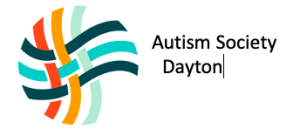
Every child in the United States has a right to a public education, this includes children with Autism and other disabilities. The Individuals with Disabilities Education Act (IDEA), is the federal law that guarantees a free and appropriate public education in the least restrictive environment for every student with a disability. The law’s 2004 reauthorization (P.L. 108-446) further defined children’s rights to educational services and strengthened the role of parents/care providers in their children’s educational planning process. This means that the education for students enrolled in public schools should come at no cost and should be appropriate for their age, ability, and developmental level. The law specifies that educational placement should be on an individual basis, not solely on the diagnosis or category of disability.
Parents/care providers have a voice in the educational process. But keep in mind that IDEA requires that an appropriate educational program be provided, but not necessarily the one that is “ideal” for every child. It is important that parents/care providers work with the school to get the educational support and services the student needs.
Educational planning for students with Autism often addresses a wide range of skill development, including academics, communication and language, social skills, self-help skills, behavioral issues, self-advocacy, and leisure-related skills. It’s important to consult with professionals trained specifically in Autism to help a child benefit from their school program. Obtaining a range of opinions is also useful.
National Statistics on Disabilities
